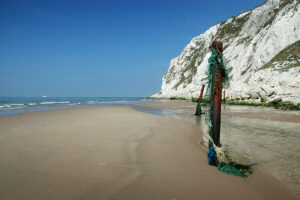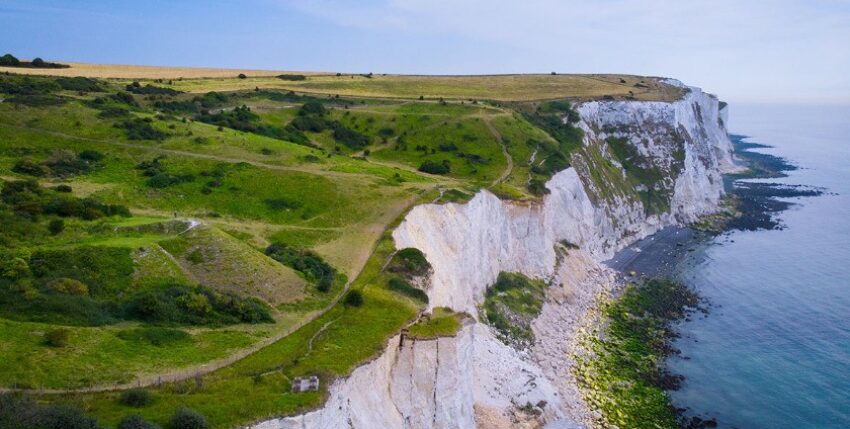The island location has significantly influenced the character and thinking of the British. From the other side of the Channel, some things just look different.
Ian Morris is regarded as a historian of the long line. A good ten years ago, in his bestseller "Who rules the world?", he raised the fundamental question of why civilisations rule or are ruled. One of his answers was appropriate at the time, which was characterised by interventions by Western states that often intervened in regional conflicts in Africa, the Balkans, the Middle East and the Hindu Kush with the help of local forces. At the time, Morris' ride through world history taught us that the regionalisation of Western military operations was merely experiencing a renaissance and was not a completely new strategy. The British homeland of the history professor, who now teaches at Stanford, played a role in this: Great Britain had already used regional forces in the colonial era to gain the upper hand in crisis regions - whether in Africa or Asia, albeit for completely different motives than in the nation-building missions of today.
Now Morris has once again dedicated himself to the country of his birth - and again in long lines. It has already become a tradition for him to examine his subject over a period of thousands of years - most recently in his deliberately provocative book "Krieg. What it's good for" about perceptions of military violence from the Stone Age to the present day, published a year before Russia's military aggression against Ukraine began in 2014.
Conflicts and wars over the millennia are also the subject of his new book "Geography is Destiny". Morris focuses on the insularity of his British homeland and relates it to continental Europe and the wider world. He assumes that identity, mobility, prosperity, security and sovereignty have always been humanity's greatest concerns. He cites the Roman historian Tacitus as a witness to this, who described the discussions of the locals on these issues 2000 years ago in one of the oldest surviving written accounts of Britain: While Rome had drawn Britain into its empire, some Britons had enjoyed the refinement and splendour that their violent conquerors had brought to the island, while others had regarded everything that had come from the continent as inherently decadent.
At the same time, Morris notes that the British today would think very differently about identity, mobility, prosperity, security and sovereignty than they did in the days of Winston Churchill, let alone Queen Victoria, Queen Elizabeth I and her privateers Francis Drake and Walter Raleigh or Caesar. While this observation is not surprising, its justification runs like a thread through Morris' detailed account of the "power struggle between Britain, Europe and the world": When you look at the bigger historical picture, he says, you realise that ultimately something else - something much more fundamental - determined how people would think about identity, mobility, prosperity, security and sovereignty: Geography.

Morris also draws on witnesses to substantiate this thesis. He recalls that six years before Brexit, David Cameron, as Prime Minister and father of the EU referendum, had already named "Our Island Story" by Henrietta Marshall from 1905 when asked about his favourite childhood book - a discussion of how insularity had shaped the British or, as Marshall put it, the English character. Morris also recognises a brother in spirit in his fellow historian Robert Tombs. He thought the same way and prefaced his 2021 book "This Sovereign Isle" with an obvious truth: "Geography comes before history. Islands cannot have the same history as continental plains."
Morris now develops these statements further. For him, geography has an even broader meaning: while the physical shape of the British Isles has hardly changed in the last few thousand years - their coasts, rivers and mountains are still more or less where they were when Stonehenge was built - the meaning of these geographical features has changed considerably. Long-term observation has taught Morris that the importance of geography always depends on two factors: technology, especially mobility and communication, and organisation, especially forms of organisation that make it possible to use new technologies effectively.
As technology and organisation are known to be constantly changing, according to Morris' analysis, the meaning of geography is also changing, which in turn changes the role of identity, mobility, prosperity, security and sovereignty. Against this backdrop, Morris sees Brexit as "merely the latest round in an age-old debate about the meaning of British geography".
As early as the Middle Ages, the English Channel and the North Sea no longer represented barriers due to professionalised and organised shipping, but instead formed maritime highways. Morris deduces from this that Britain's proximity to Europe was more important than its insularity at the time.
At the same time, the English soon succeeded better than anyone else in combining new shipping technologies with new forms of organisation. Morris recalls that the governments in London were able to build fleets strong enough to prevent anyone who reached the French Channel coast from crossing the English Channel and reaching England.
The English Channel always remained exactly the same width. But the moment the Royal Navy was able to deny England's enemies access to this strait, insularity prevailed over proximity, according to Morris. Philip II in Spain, Louis XIV and Napoleon in France and Hitler in Germany all had the same experience: the short distance from Calais to Dover seemed a million kilometres long as long as the British controlled the sea.
What does this mean for the future? After hundreds of pages of history on the mutual relations between the British Isles and mainland Europe and the other continents, with all their political, economic and social facets, Morris brings us to the immediate present. Not surprisingly, the focus here is also on how the UK is dealing with China's resurgence. In its 2021 "Integrated Review of Security, Defence, Development and Foreign Policy", London, like the United States, announced its "turn to the Indo-Pacific region", as China's military modernisation and its growing international assertiveness in the Indo-Pacific region and beyond would pose an increasing threat to the interests of the United Kingdom. There is even talk in London of re-establishing a British base in the South China Sea - in Brunei or Singapore. Surveys show that the British are also afraid of China, but not as much as Americans or Australians. Instead, they see Russia as an immediate threat. The European continent is once again very close, and British involvement in the Ukrainian defence campaign against Russian aggression is very strong. Morris could comment on this with British understatement: Geography is destiny.
This article follows on from an article published in the Neue Zürcher Zeitung on 17 August 2022.
Thomas Speckmann is a historian and political scientist and has lectured at the universities of Bonn, Münster, Potsdam and the FU Berlin.
Thomas Speckmann








